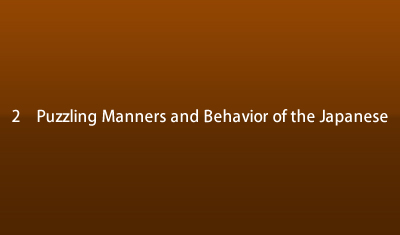 |
Q Why are the inside of homes kept clean but public places kept dirty?
A It may be exaggerating it a little, but it is often said that the Japanese have no concept of"city" or "public." Modern city development in the West was, on a great part, undertaken in a comparatively systematic fashion, unlike in Japan where there was no proper city planning whether in Tokyo or Osaka. People lived wherever they pleased causing the city to sprawl out haphazardly.
Throughout history, cities in Japan built according to a city plan were few in number. These cities are: Kyoto, Sapporo in Hokkaido, and Nagoya after the war. A good example of a public area is parks. There are only 2m' (6.3 sq. ft.) of park space per person in Tokyo while it stands more or Jess at 40m' (129 sq. ft.) per person in Washington D.C. Having only one twentieth of public space than Washington D.C. does not bring about an awareness in the Japanese that parks and cities are a part of one's envi-ronment that require care.
Many people are concentrated in a small area and trash is bound to accumulate, but the Japanese feel it is no use attempting to do anything about it. This attitude of, "it's no use fighting city hall" brings about a tacit approval and may be the reason why public places are not kept clean. ouestion



